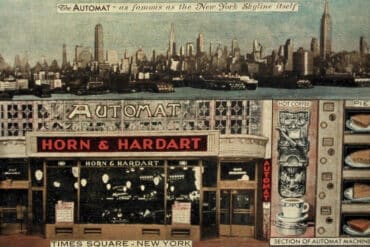Pinkie Points It Out: Never Tell a Black Woman…
I should start by introducing myself. I’m Pinkie, the brash I don’t give a fuck alter ego of Renata Ferdinand. I’m the one she keeps hidden behind all the academic talk and accolades. ( She does this for several reasons. For example, fear, retribution, and just the general unease that people get when a Black woman speaks their truth).
Yet behind the conformity and rigidity that often accompanies the life of an academic scholar lies a truer self—one that is often hidden from plain view.
But not anymore!

I am emerging from the shadows, and blissfully, with my own column. I write this column to point things out, to make observations about ANYTHING. Topics range the gamut, from a critique or observation about pop culture to random thoughts on current social issues.
But I must warn you. Although intellectually sound as any academic writing, this is not an academic article. This means the conventional rules of such publications don’t confine me. You will find me expressing myself in my natural voice. This includes obscenities (like the fuck I used earlier). This also includes emojis, sarcasm, and Black women’s colloquial language, just to name a few. There is no expectation that I will do a deep interrogation of a topic or provide you with a statistical analysis or recurrence of a phenomenon. Again, this is not an academic article. Rather, I will point something out. It’s on you what you do with it.
I can hear the naysayers right now telling me that I can’t do this. In fact, right now, society is telling Black women all the things they can’t do. A Black woman cannot be a mermaid. Fuck the fact that a mermaid is not real. She cannot play a flute once owned by a president who owned more than 100 slaves. That would be an abomination. Nor can she (or any other Black person in general) play an elf or dwarf or harfoot or human from Middle-Earth on The Lord of the Rings or ride a fucking dragon on The House of the Dragon.
She cannot even portray a Black woman in The Woman King. In fact, the hashtag #BoycottWomanKing gained traction amongst trolls on the internet. They criticized the film for what they perceive as whitewashing history and glorifying a slave-trading empire. Where was this fucking outrage when other films took creative license in their storytelling? Films like 12 Years a Slave or Lincoln or Django Unchained? I could have really used a boycott of the latter movie. The two Black characters are pitted as archenemies instead of the White plantation owners.
And speaking of empires that made a fortune from slavery, where’s the boycott of all the movies and television series centered on European royalty, like The Crown? Surely, they benefited from the same trade as the Dahomey. The queen’s recent death, which showed mourners in line for 12 and 13 hours, tells me that any hopes I have of a boycott would certainly be dashed.
Or we can bring this right back home. In speaking of Hollywood films, where’s the boycott of the continued negative portrayal of Black characters? Does Hollywood use Black characters to propel the White characters further on their journey, like Jurassic World: Dominion? Or a movie I profoundly hate, A Time To Kill, which uses a brutal, violent assault of a little Black girl by White men to advance the White character’s story. The same industry that just recently awarded Sheryl Lee Ralph an Emmy for Best Supporting Actress in a Comedy Series. That makes her only the second Black woman to win. And wow, a 35-year gap, might I add. Make it make sense, Lordt!
So, let’s get to boycotting. Since we are so not into people making profits off of “whitewashing history,” let’s boycott all the schools and military bases named after confederate soldiers. Let’s boycott all the slave plantations that are currently used for destination weddings. Let’s boycott all the state laws that are currently being implemented to prevent Black history from even being taught in schools! Better yet, in thinking about the exploitation of Black bodies for profit, drop that Apple phone you love so much. Trash that laptop because it likely uses cobalt to power the rechargeable lithium batteries in it—cobalt mined by child laborers in the Democratic Republic of Congo. Oh, and drop that chocolate bar—the ill-gotten gains from child laborers in Ghana. I could go on and on. But my point is simple:

…is tell a Black woman what she can’t do.
Featured image created using Prisma by The AutoEthnographer
Dr. Renata Ferdinand is Professor and Chair of the Department of African American Studies at New York City College of Technology in Brooklyn, NY. She writes autoethnographies that explore the complexities of the lived experiences of Black women and girls, from how race and gender impact experiences within the healthcare system to colorism, racial stereotypes, and Black women’s identity. Her work has been featured in several outlets, including Cultural Studies + Critical Methodologies, Journal of Health Psychology, The Popular Culture Studies Journal, to name a few,and within several edited volumes, including International Perspectives of Autoethnographic Research and Practice, Blacklove: The Intimacies and Intricacies of Romantic Love in Black Relationships, and Space and Culture: The Journal. She has given several talks on Black Motherhood Studies and Black Girlhood Studies and was recently featured as a literary expert for the article, “Reblazing Saddles: Who Shapes the Wild West Lit Canon?” for Bitch: Feminist Response to Pop Culture. She is the recipient of the 2018 Ellis-Bochner Autoethnography and Personal Narrative Research Award from The Society for the Study of Symbolic Interaction (SSSI) of the National Communication Association for best published essay. She serves as an expert reviewer for several publications and is currently an editorial board member of the Journal of Autoethnography. Her book, An Autoethnography of African American Motherhood: Things I Tell My Daughter is newly released (Routledge, 2021).













